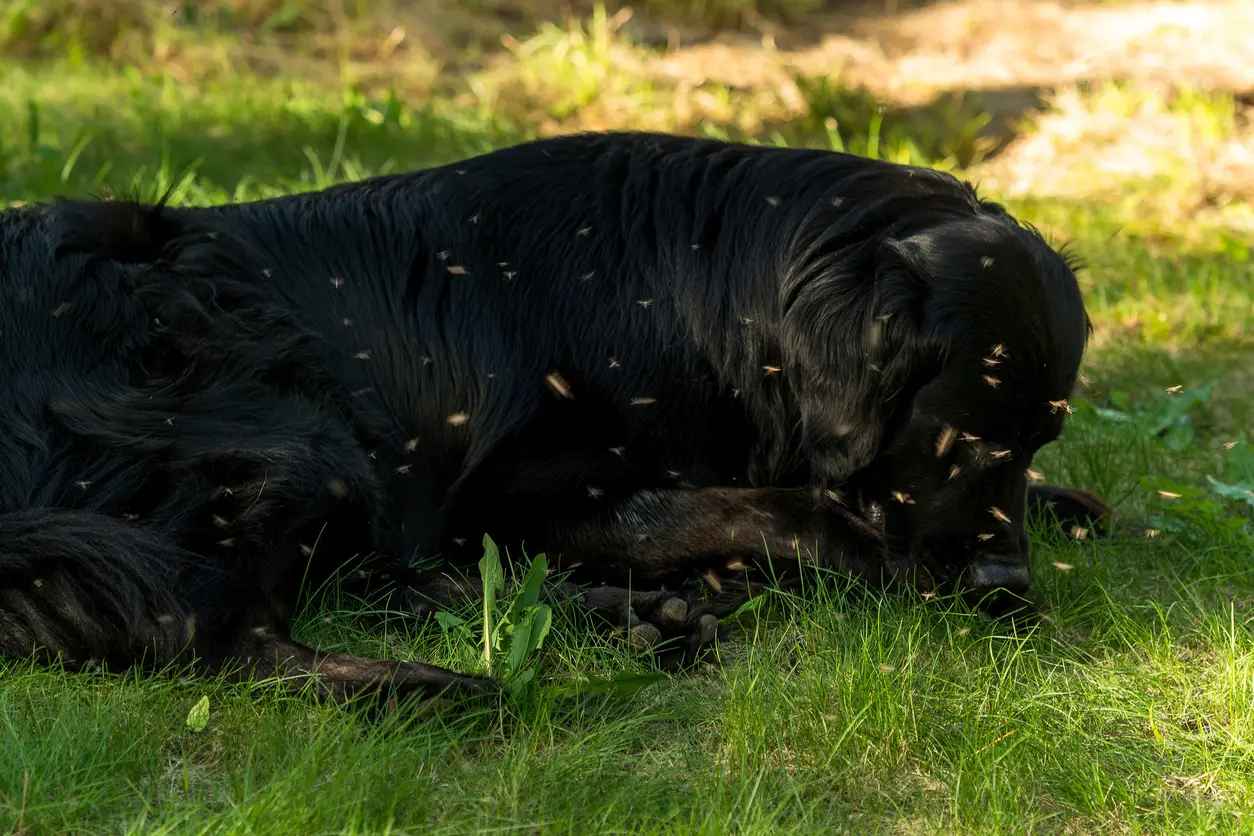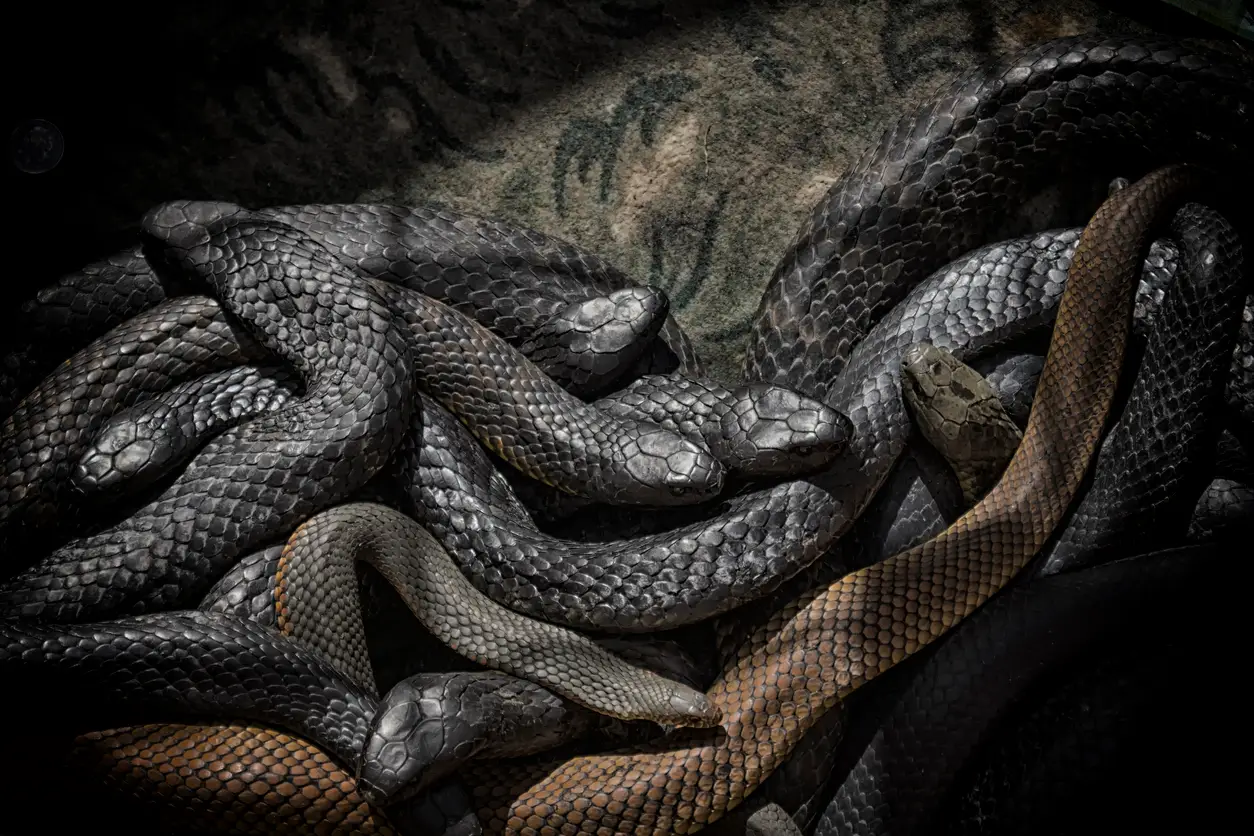While pet owners are aware of the health risks associated with ticks and fleas, there’s another pesky parasite that’s given less attention–the mosquito.
If you’re fond of spending time outdoors with your canine buddy, you may remember to take precautions to protect yourself from mosquito bites. But are you taking the same measures for your four-legged companion?
Mosquitoes are ubiquitous and can easily reproduce to pester you and your pet, even during short periods of warm, moist weather. Their bites may be small, but they are a constant source of irritation and annoyance.
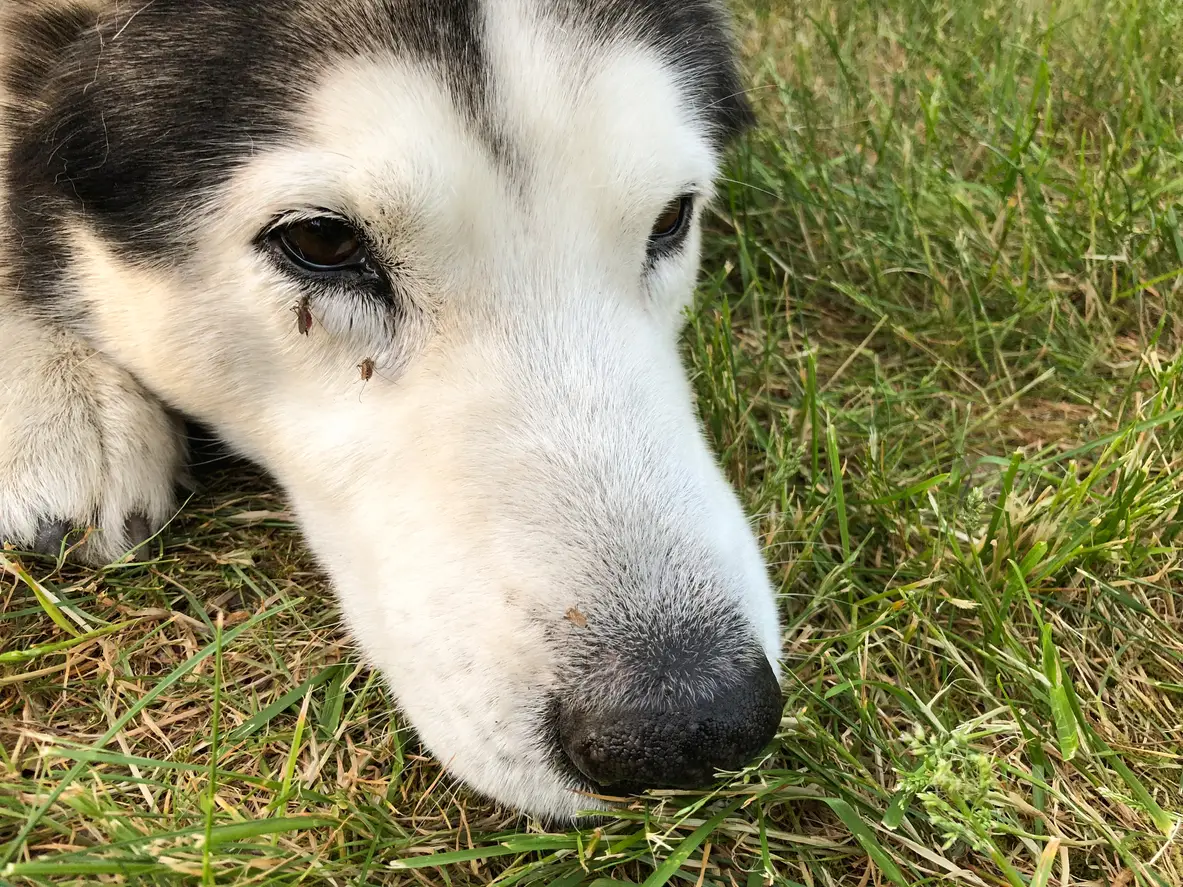
The dangers of mosquito bites extend beyond itching and irritation in dogs. Dog mosquito bites can become infected and increase the risk of hot spots. Although uncommon, a mosquito bite can cause a dog to experience a severe allergic reaction (anaphylaxis).
However, the biggest risk associated with mosquitoes is their ability to transmit disease. According to Vector Disease Control International (VCDI), “though mosquitoes are most known for infecting dogs with heartworms, which cannot be spread to humans, dogs can also contract other viruses like Eastern Equine Encephalitis (EEE), sometimes referred to as sleeping sickness”.
Mosquitoes are bloodsucking parasites; they aren’t picky about who they bite—if given the chance, they’ll feed on a dog. Even if thick fur or long hair may help protect your pet, it does not eliminate the possibility of a mosquito causing irritation or illness. Thus, taking preventive measures to protect pet dogs from mosquito bites is very important.
Signs and Symptoms of Mosquito Bites
Mosquito bites on dogs can be bothersome, but being able to identify them is the first step toward providing relief for our furry friends.
A dog with mosquito bites may have small, raised, and often reddish bumps on the skin. The welts may be more visible in dogs with short hair, such as Pit Bulls and Pugs. It might be challenging to tell if a long-haired breed, like a Maltese or Shih Tzu, has received a mosquito bite.
To alleviate the itching and discomfort, a dog may repeatedly scratch, lick, or nip at affected areas, leading to redness and irritation. Sometimes, a mosquito bite causes a localized swelling which can be tender to the touch.
Although a dog can get mosquito bites on many different parts of their body, the exposed, possibly thin-skinned, or sparsely covered areas are the most frequently targeted. These include a dog’s ears, belly, paws, nose, and muzzle. Unlike some other insects, mosquitoes usually leave multiple bites in clusters.

What Should I Do If My Dog Was Bitten by a Mosquito?
Don’t panic if you find mosquito bites on your dog’s body. Most bites resolve within one to two days without any complications.
Because of heartworm risk, ensure your dog’s heartworm prevention is up-to-date. This can significantly minimize the risk of severe complications.
Take your pet to the veterinarian if there are signs of infection from excessive scratching or chewing of the bite. It would be best if you watched out for signs of scabbing, excessive swelling, or a foul odor on or around the site of the mosquito bite.
A severe form of allergic reaction (anaphylactic reaction) to a mosquito bite includes swelling of the face, vomiting, diarrhea, and lethargy. Anaphylaxis can be a life-threatening reaction, and if your dog is exhibiting these symptoms, go to the nearest veterinary clinic immediately.
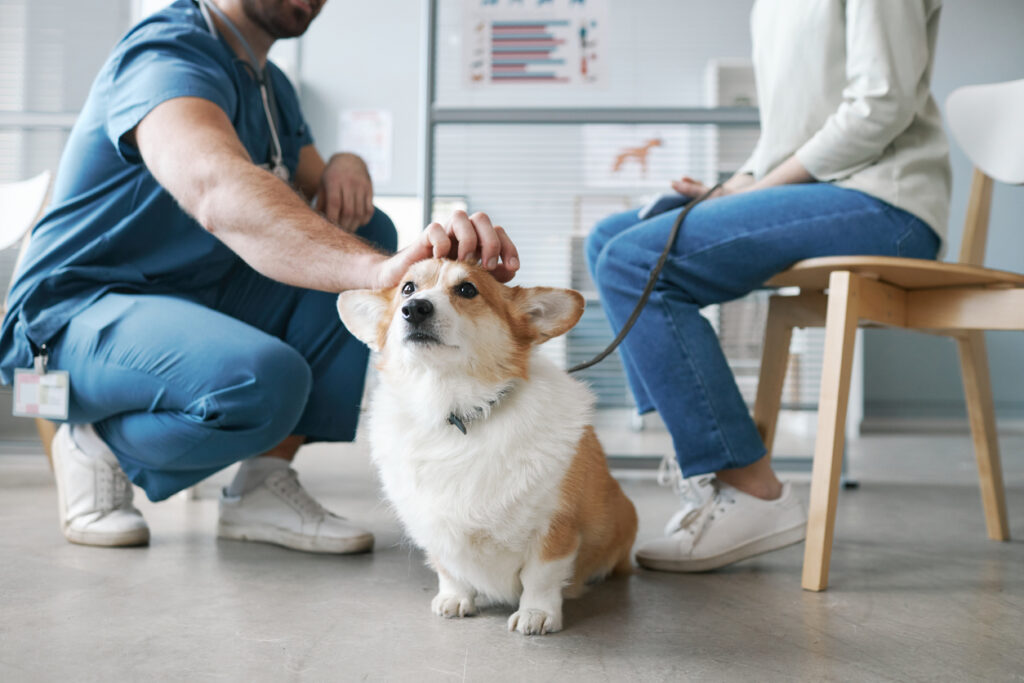
Treating Mosquito Bites on Dogs
Mosquito bites that are not infected don’t need any treatment because they eventually heal on their own. If your dog keeps on scratching the site, an E-collar can help keep your pet from scratching on the bite while it heals.
Natural Remedies for Dog Mosquito Bites
- An oatmeal bath can be soothing and help relieve inflammation. Use a pet-specific oatmeal shampoo or make a DIY oatmeal bath by soaking rolled oats in lukewarm water and adding the strained mixture to your dog’s bath.
- Aloe Vera or Chamomile (in gel or diluted form) possess soothing properties. Apply a thin layer of gel to the bites to soothe itching and promote healing. Ensure the product is pet-safe and avoid the eyes and mouth.
- Applying a cold compress or ice pack wrapped in a towel to the bitten area can provide temporary relief. The cold temperature can help numb the area, reducing the itchiness and inflammation caused by the mosquito bite. Apply the cold compress for short intervals to avoid discomfort. And make sure your dog is comfortable with the process.
Use of Antihistamines for Itch Relief
Always consult your veterinarian before giving any medication to a dog with mosquito bites. While antihistamines for humans can be given to dogs, your veterinarian can recommend which antihistamines are safe as well as the appropriate dosage for your pet. Make sure to closely monitor your dog for any adverse reactions after giving the medication.
Antihistamines can help reduce the itching and discomfort caused by mosquito bites by blocking histamine receptors in the body.
How to Keep Mosquitoes Away from Your Dog
Mosquito Repellents
Consult your veterinarian about choosing a dog-friendly mosquito repellent. There are several options available, including mosquito repellent sprays or spot-on treatments.
Avoid using mosquito repellent products formulated for humans on dog mosquito bites, as these may be formulated with ingredients that are harmful to dogs.
Avoid Peak “Mosquito Hours”
Steer clear from walking or leaving your pet dog outdoors when mosquitoes are most active, typically at dawn and dusk. This can help reduce exposure to mosquito bites.
Environmental Control
- Make your yard uninviting to mosquitoes by keeping your surroundings clean. Also, be on the lookout for stagnant water–ponds, empty flower pots or containers, kiddie pools, or puddles formed from improperly drained areas can all attract mosquitoes. The water in your pet’s water bowl must also be changed at least once a day.
Mosquitoes are drawn to wet or moist areas because their eggs are laid in or near standing water. Mosquito larvae don’t require much water to develop—just a small amount. Typically as little as an inch is sufficient. Also, they tend to stay near their breeding sites, with many species rarely traveling more than 1,000 feet away. Because of this behavior, removing or managing standing water around homes is important for reducing mosquito populations.
- Some synthetic and natural products can be sprayed or applied on yards to prevent or deter mosquitoes. Ask your veterinarian about them.
- Prevent mosquitoes from entering your home by installing screens on windows and doors. Fill gaps between air conditioners and window sills, and repair any damaged windows and screens in your home.
Mosquitoes can become dehydrated when exposed to direct sunlight. Most mosquito species prefer cold, shaded areas throughout the day, such as heavy weeds, ivy, bushes, and wood heaps. It’s a good idea to steer clear of these mosquito habitats during the day or take the necessary precautions if these spots are along your dog’s daily route for walking and exercise.
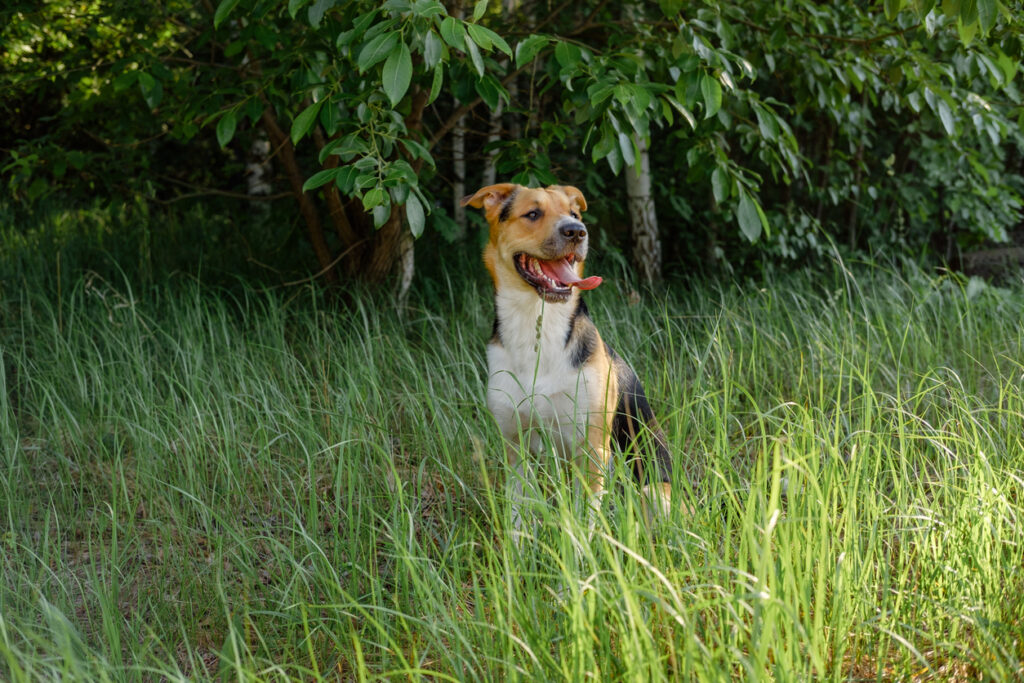
Conclusion
Recognizing the signs of mosquito bites helps with early intervention. Prompt treatment is necessary to prevent further irritation and reduce the risk of secondary infection.
By being proactive in identifying, treating, and preventing dog mosquito bites, we help ensure that our canine buddies lead comfortable and happy lives.
